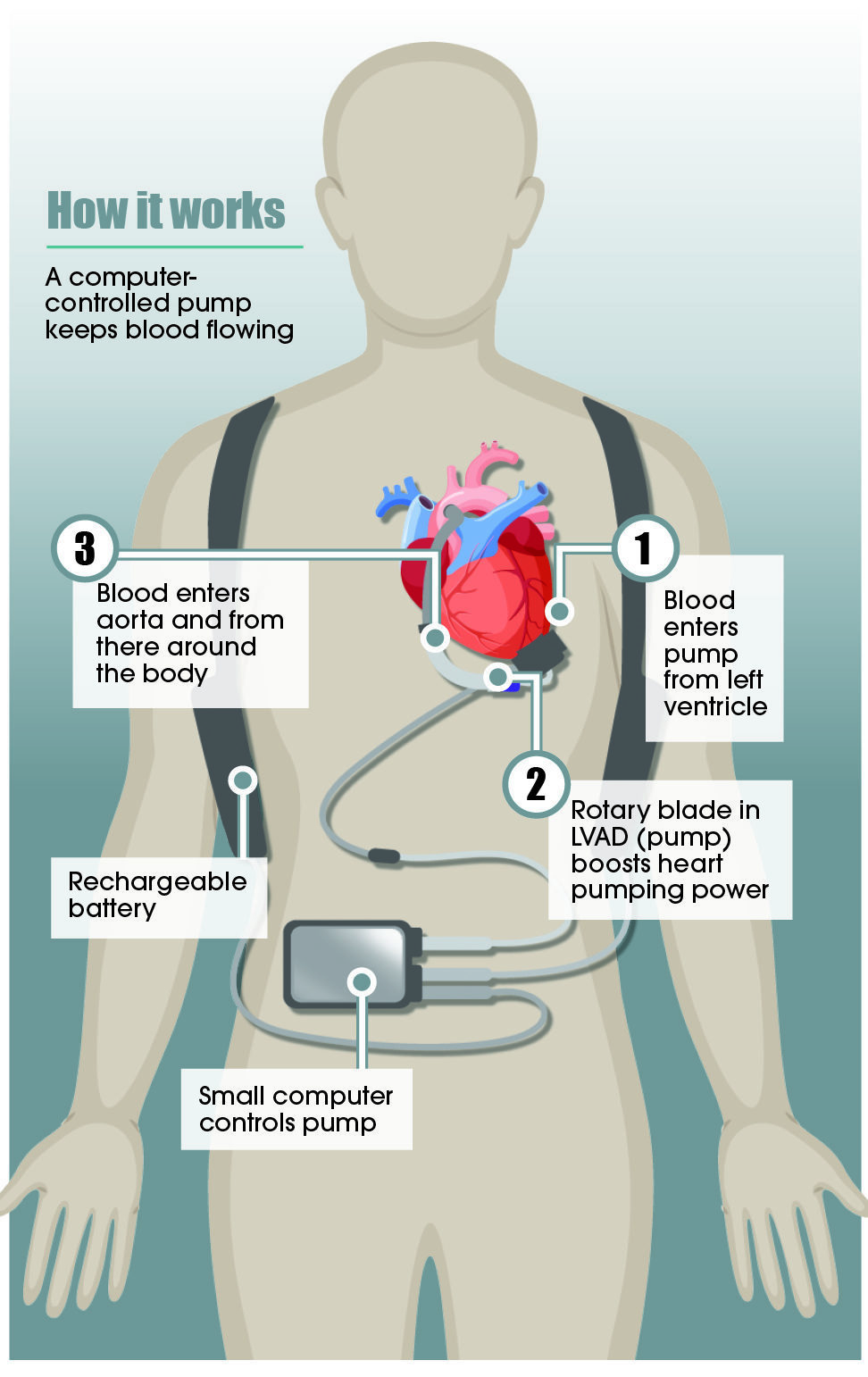
A HEART patient carrying a life-saving backpack has revealed how he was questioned by police suspecting he was a suicide bomber.
The 28-year-old Asian man says he suffered stress and anxiety after a battery pack needed for a heart pump implant was mistaken for an explosive device.
The details have emerged in a case reported by doctors from the Scottish National Advanced Heart Failure Service, based at the Golden Jubilee National Hospital in Clydebank, West Dunbartonshire.
It is thought to be the first report in the UK of a patient with a heart pump implant being stopped and questioned as a possible security threat.

The man, who has not been identified and is of Pakistani nationality and ethnicity, was also harassed by members of the public in a shopping centre and on a train.
It is reported he was also quizzed by police for 20 minutes about the device after he was stopped due to a fault with his car rear light.
The report authors say the incidents had a “notable” impact on the patient’s wellbeing and have called for awareness of the device to be raised to help prevent similar incidents happening in the future.
The patient was fitted with a device known as an implantable left ventricular assist device (LVAD) after being diagnosed with heart failure.
This is implanted into the chest to help keep the blood pumping through the heart and powered by batteries which are usually kept in a holster and attached by a lead through the abdomen.
One of the most famous patients who has used the device is former US vice-president Dick Cheney, who was fitted with an LVAD in 2010 while waiting for a heart transplant.
But in the case reported in the medical journal Heart & Lung, the patient reported difficulties he encountered when wearing the device, including one incident when he had to change his battery in a shopping centre.
The report noted: “As he was doing so, an individual approached him in an aggressive manner.
“The individual asked the patient directly, ‘Where are you from?’ and directly, ‘Is that a suicide bomb?’
The patient attempted to explain what he was doing and the purpose of the device.
“Whilst this appeared to appease the stranger, the patient was emotionally shaken by the event and left the mall prematurely to return home.”
Another incident occurred on a busy train, when the patient had to stand and hold onto a bar above his head, which revealed his battery pack.
He was then harassed by a group of teenagers loudly accusing him of being a suicide bomber – resulting in “everybody looking” at him.
On the third occasion, he was stopped by police while driving, who alerted him to a faulty rear light in his car. One of the police officers then noticed his battery pack.
“The patient described an ordeal of questioning by two officers, one who appeared interested in the device and the other who he believed was ‘suspicious of the device’,” the report said.
“He estimated the second police officer questioned him for 20 minutes, much of which focused on the patient’s background.”
The patient ended up altering his behaviour because of the incidents – for example wearing certain clothes to conceal the LVAD device and becoming less willing to use public transport.
He went on to successfully receive a heart transplant after 16 months of wearing the LVAD, after which his psychological wellbeing was found to have improved.
The paper concluded the patient had experienced “unforeseen challenges” while living with the LVAD implant due to being “mislabelled as a security threat”.
It added: “It is possible he was treated with suspicion due to an element of racial profiling.”
The Golden Jubilee Hospital said it currently provides ongoing care for five people who have received a long-term ventricular assist device.
He added: “The Golden Jubilee team are currently working to increase awareness of LVAD amongst the general population as well as making sure that our patients have requisite information and coping skills to deal with a range of challenges they may face.”

Enjoy the convenience of having The Sunday Post delivered as a digital ePaper straight to your smartphone, tablet or computer.
Subscribe for only £5.49 a month and enjoy all the benefits of the printed paper as a digital replica.
Subscribe